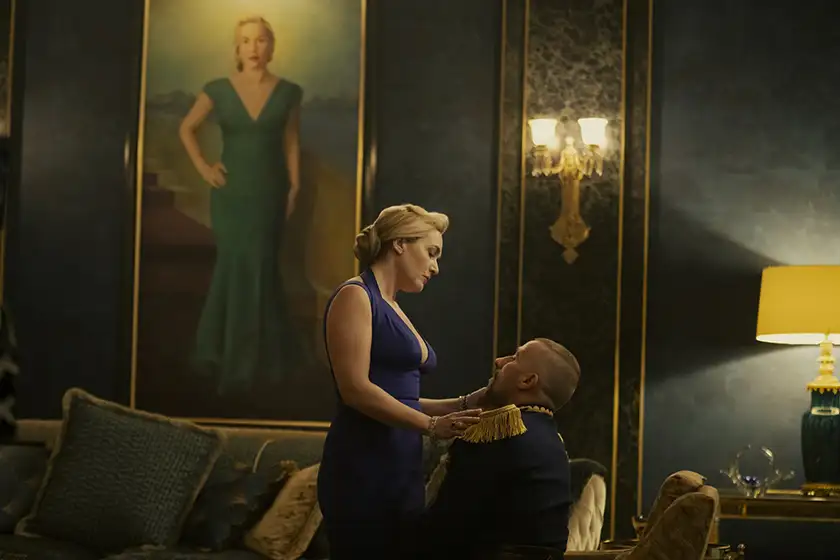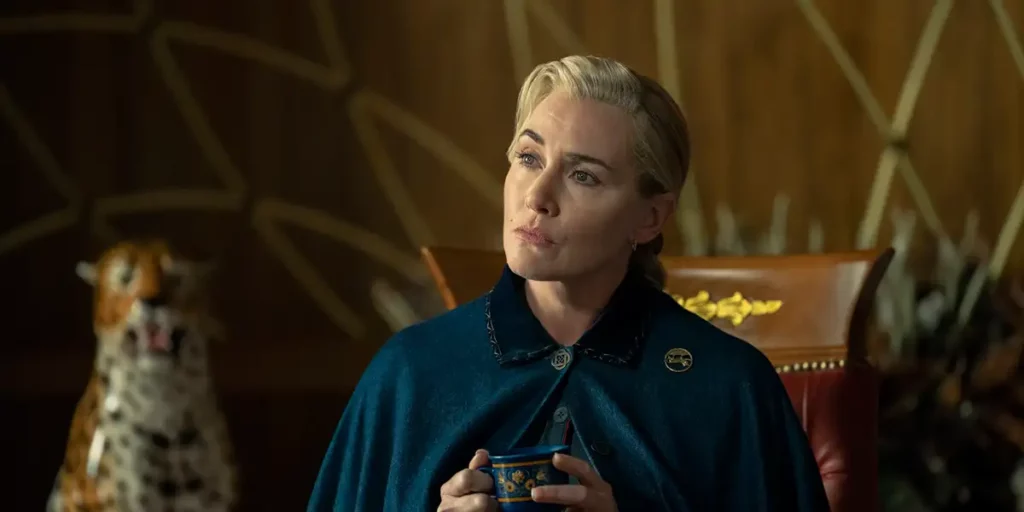In its newest episode, The Regime episode 3 further explores its political commentary, blurring the lines between reality and fiction.
Watching episode 3 of The Regime in the wake of the Russian elections feels somewhat tragic and comical at the same time. And yet, there is perhaps no better time for a show like this one to explore its social commentary and political satire. Its no-so-covert metaphors and references to the real world are all the more poignant today: Vladimir Putin has recently claimed landslide victory in an evidently staged election and in a country where protests against his dictatorship are only growing stronger. As the Russian leader openly condemns the Western governments’ criticism of his elections in an address to his citizens and continues the war in Ukraine, the HBO series seems to truly have taken its plot lines from real-life politics.
In The Regime episode 3, titled “The Heroes’ Banquet,” Chancellor Elena Vernham (Kate Winslet) continues the isolationist politics that we have seen in the season premiere, and introduces a new land reform, promoted of course by Herbert Zubak (Matthias Schoenaerts), a soldier now turned Elena’s right-hand man and most trusted advisor. But how long is this political union going to last? As her psychosis once again worsens, Elena sends Zubak to the front lines when she authorises a controversial military mission to occupy and invade – or reunite as she would rather say – the Faban corridor, a nearby territory.
The power dynamic is particularly interesting as the audience finally sees Zubak’s growing influence on Elena and, therefore, the country’s politics but, eventually, also its downfall as he gets banished from Elena’s inner circle at the end of episode 3. We are not even halfway through The Regime, and a lot of Zubak’s character arc already seems complete: from banished soldier to someone who was in control of the nation to outcast again, I can’t help but wonder where his character will now go and how we can further explore his personality and the dangerous but alluring power he seemed to exercise upon the Chancellor.
We also get a glimpse into the world politics that surround her country in this week’s episode, with the mention of Taiwan and Germany, and the increasing relevance of both China and the United States In episode 3, however, The Regime remains too closed off to the outside world, its entire plotline contained within the palace’s walls. As a result, we see next to nothing of the world politics that seem so key to this show, except for the news segments that show us every country’s reaction to the military expedition ordered and justified by Elena. And, similarly, we see even less of the very citizen she is always addressing: as of now, we nothing of how they live or what they think of their Chancellor’s new reforms.

As the mentions of other countries and their politics become prominent, the fact that Elena mirrors Vladimir Putin is more evident than ever in episode 3. But if The Regime wanted this unnamed country and its Chancellor to be a satire of modern-day Russia, why not just do so instead of remaining geographically vague about its location and history? Previously, the show’s strength had somewhat been in this dubious figure that Elena represented, one that easily stand for multiple far-right authoritarian leaders in one single character. In this episode, this fascinating ambiguity is lost as the parallels to today’s politics are heavily reinforced rather than simply suggested for us to analyse or find connections to.
A lot of episode 3 feels like it is being spoon-fed to the audience rather than organically discovered during the show. In particular, this hurts the characters in the series, who end up looking more like walking stereotypes than actual characters we can root for, despite, or even relate to to some extent. While exaggeration and satire may be the whole point of The Regime, its very building blocks – the characters and their interaction – need to be more than just a means to an end with little motivation behind their actions.
In the end, all of this comes down to a lack of stakes in The Regime. As episode 3 made abundantly clear, there is no actual antagonistic figure to oppose Elena and her entourage. The United States and the political opponent she has mentioned in this episode could both qualify but they also feel like a distant threat, one that the audience never really gets to see as they are only brought up in passing during the show so far. In future episodes, I hope The Regime can bring some actual conflict into the plot while focusing on what it does best: a political satire that blurs the line between what is fictional and what is our everyday life.
Episode 3 of The Regime is now available to watch on Max. Stream all available episodes of The Regime and read our review of Episode 4!

